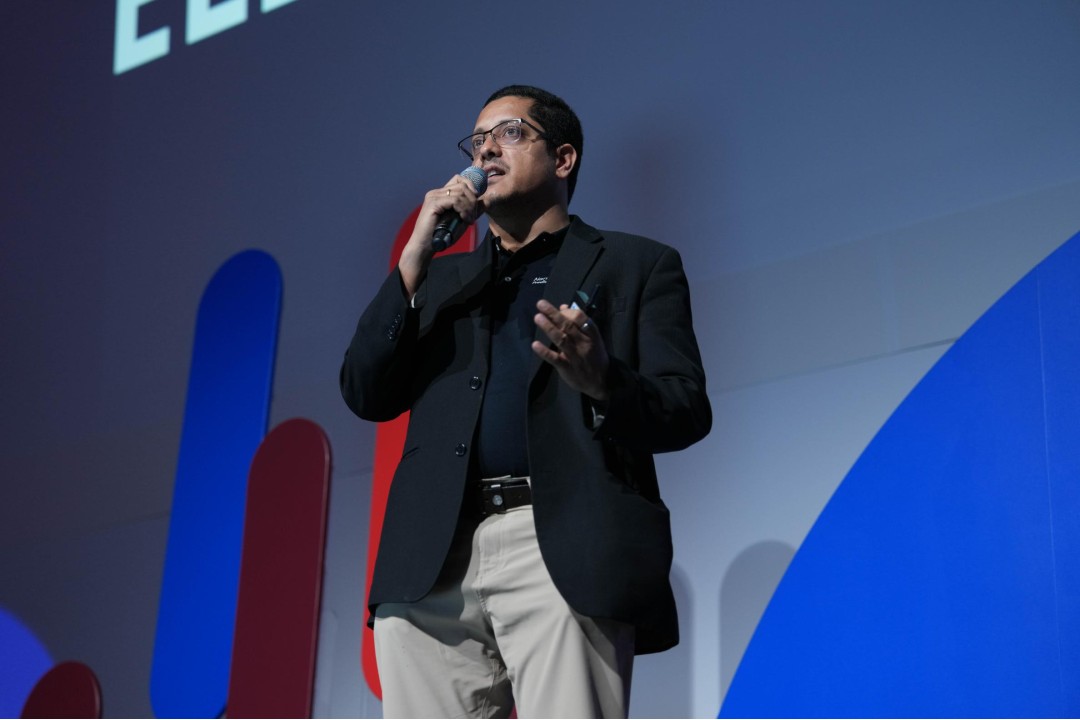As the founder of one of the rare Edmonton companies to raise millions in venture capital, Sunil Vedula of Nanoprecise Sci Corp feels the weight of expectations, but he is also confident he can live up to them.
"This kind of investment does not happen very often in Edmonton, but I would love this kind of investment to happen more often in Edmonton," founder and CEO Sunil Vedula told Taproot. "That's why we have a big responsibility that (our company) should not fail … We will make sure it will not."
Nanoprecise makes sensors and software for industrial machine maintenance. It helps businesses identify and fix mechanical issues, solve the underlying issues behind equipment failures, and predict them before they happen. This work is good for the bottom line and for the environment, Vedula said.
"Just imagine: 60% of global electricity consumption is caused due to rotating machinery," he said. "Nobody talks about that."
Vedula told BetaKit that Nanoprecise will use the US$38 million in Series C funding to develop new products, hire staff, and expand in Southeast Asia, Latin America, and Africa. Nanoprecise already operates in North America, Western Europe, and South Asia. Global operations were always part of the Nanoprecise plan, Vedula said.
"Finance was my most loved subject in my MBA, and I always believed in one thing — diversify your risk portfolio," Vedula said. "You never want to be in a position where one customer going away, or one region closing their doors to you, should impact your business."
Vedula's foresight will likely help reduce the effects of American tariffs (and the uncertainty they create) felt by some other companies. While Nanoprecise's biggest market is the United States, where the company does 35% of its business, Yaletown Partners "absolutely" saw the company's international potential as a key reason to help lead the Series C round.
"To get to a Series C, that means you've been around, you've scaled, you are showing that you can be profitable — if you aren't already — and you have customers and strong business in global markets," Yaletown investment manager Arden Tse told Taproot. "(Series C is) a continuation of your expansion. It is a continuation of getting into other markets, either geographically or with other verticals."
Vedula said Nanoprecise is not profitable yet, but he has faith it will be soon. "We are pretty confident that this will be our last round of funding (while) being unprofitable," he said.

Nanoprecise founder and CEO Sunil Vedula on stage at the CIX Summit in Toronto on March 25. His company added a new layer of intelligence to its industrial equipment monitoring tech shortly after its Series C funding round was announced. (Supplied)
Venture capital funding usually starts at a seed or pre-seed level before moving onto alphabetized rounds with ascending expectations for growth. Nanoprecise raised a US$10 million Series B round in January 2023.
For Series C, "new investors come to the table expecting to invest significant sums of money into companies that are already thriving as a means of helping to secure their own position as business leaders," Investopedia says. Tse added there is no one purpose for Series C, and that growth funding always depends on a company's specific goals.
Nanoprecise is one of fewer than 12 startups from Edmonton to receive this level of investment, Tse said. Jobber is particularly notable for closing US$100 million in a Series D raise in February 2023.
"We're talking about a sample size of less than a dozen companies," Tse said, adding that Edmonton is not the same investment environment as Silicon Valley. "I think a more informative way to look at this would be to understand the frequency of these kinds of events with the population size, or at least the industry size, that we have."
Alongside Yaletown, BDC's Industrial Innovation Venture Fund co-led Nanoprecise's funding round. Export Development Canada and BMO Capital Partners also participated, while CIBC Innovation Banking contributed a credit facility.
Tse also said VC growth rounds are not the only indicator of investment success in Edmonton. Some companies sell larger stakes to private investors or sell their startups outright. For example, WELLSTAR announced its acquisition of Healthquest for an undisclosed sum in January. Some other Edmonton companies that have been acquired include EZOPS, Drivewyze, and Granify.
"Private equity takes on a majority ownership, whereas venture capital doesn't, and so they come up with a big cheque, and then the company gets acquired not too long after that," Tse said. "It's an interesting phenomenon. We don't typically get the companies here that raise multiple rounds of venture and continue that trajectory to a very significant exit."
He added that the Canadian software companies can exit for somewhere between $100 million to $200 million. Tse said that is "decent," but the investor community has wondered if companies are exiting too soon for less than their full potential price.
Vedula isn't focused on making an exit soon. Rather, he and his team just launched conditional intelligence for its tech. In a nutshell, this helps the software distinguish between a harmless anomaly in machine operations and one that indicates a problem.
